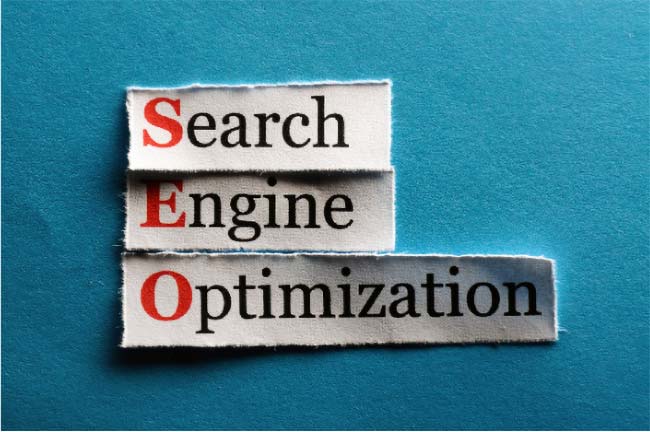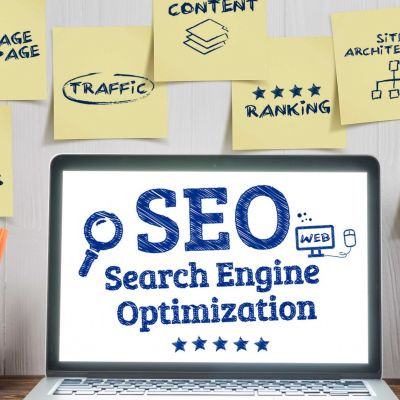SEO What Is It? A Beginner’s Guide
Are you just getting started with SEO and asking yourself, “SEO, what is it?” You’re in the correct spot! Discover what every small business owner or digital marketer needs to know about SEO by reading below.
What Is SEO, and How Does It Work?
Search engine optimization, or SEO, is a collection of techniques to enhance the look and positioning of web pages in natural search results. Since organic search is the most popular method for users to find and access online information, having a solid SEO strategy is crucial for increasing both the quality and volume of visitors to your website.
They utilize search engines when someone has a problem and wants to look for a response online. Search engine algorithms programs look through all the data on the Internet and give users the best results for their inquiries. They then choose which ones to rank for a particular set of keywords or terms. Search engines conduct three separate steps to find information known as crawling, indexing, and ranking.

Crawling
Crawling is the initial action. The web crawlers that do the actual crawling of websites are sometimes also called robots or spiders. They aim to find new websites that are available and to often check previously viewed pages to determine whether the material has changed or been updated.
Indexing
The indexing process comes next. A search engine will include a crawled web page in its index if it is found to have good enough information on it. Once the ranking process is completed, the index will be employed. There is a database where the web pages or other online material that has been indexed will be filed and saved. Websites with unique and quality information will be indexed using this method.
Ranking
Ranking comes as the last and generally the most crucial phase. Search engines employ a variety of checks and balances to determine where to rank, which includes the following:
- Keywords in titles: Whether the keyword or a related word was used on the webpage and in the title tag
- Web page loading time – Whether the website is mobile-friendly and loads fast
- Website standing – Whether the website and page with the specific content have been regarded as authoritative for the topic
An enterprise should adopt a strategy that prioritizes user experience, uses non-manipulative ranking techniques, and changes along with search engines’ and users’ evolving habits if it wants to achieve and sustain high ranks and more quality visitor traffic.

Types of SEO
Knowing how to get your brand, website, or business noticed by searchers is a fundamental competency for digital marketers. Although SEO changes in small ways, its core principles remain constant. We can divide SEO into three main elements or pillars that will help answer the question of what is on-page SEO and off-page SEO.
On page SEO
Making sure the information on your site is pertinent and offers a beautiful user experience is known as on-page optimization. A content management system may help you, including choosing the appropriate keywords to target inside your material.
Although the majority of the effort you do for on-page SEO is focused on the words you use, you may also optimize specific code components. Some of them—like the title and description meta-tags—may be familiar to you. However, there are more.
What is Keyword Research in SEO?
The best keywords to target can be discovered through keyword research. This also offers valuable insights into the searches your target market is making. You may use the knowledge you gain about these simple search phrases to guide your smaller-scale marketing plan and content strategy.
Make sure Google knows the terms you want this page to rank for first. You should use at least the primary term in the following to do that: URL, Post main title, H1 tag, within the first 100 words of the content, tags for the meta-title and meta-description, and names of image files and ALT tags.
Also include semantic keywords, such as your keyword’s variants or synonyms, because they help search engines like Google rank a page’s relevance more effectively.
Non Keyword Factors
There is more to on-page SEO than scattering keywords all over the place. The following factors also help determine the legitimacy and authority of a page:
- External connections: Including links to other pertinent sites on the subject can help Google narrow down its focus. Additionally, it offers a positive user experience.
- Internal connections: These make it possible for search engines to identify and crawl more website pages. Additionally, they demonstrate the semantic relations between different sites, which makes it easier to assess each page’s relevance to the search query. As a general guideline, each blog post needs at least 2-4 internal links.
- Length of content: Longer material often ranks higher. This is because, when written effectively, a longer blog article will always provide more in-depth information on the subject, keeping readers on your site longer.
- Multimedia: While not necessary, multimedia components like films, infographics, and audio players can indicate how well-made a page is.

Off page SEO
What is Off-page SEO? Off-page optimization is the practice of improving your site’s ranks in search engines by actions taken away from the site. Backlinks, which assist in establishing the site’s reputation, are a significant factor.
Backlinks are referrals to your material on other websites that are also known as links. You get a backlink to your website each time another website references your content and directs visitors there. Google uses this type of link’s number and quality to determine the authority of a website. Webmasters than subpar ones would more frequently cite popular, high-quality websites.
Your rankings might be impacted by low-quality or questionable links, such as those that Google might interpret as being constructed to increase a website’s authority. Because of this, SEOs concentrate on creating links only when generating links. They strive to produce references of the most outstanding caliber.
Link building is the term used in SEO to describe gaining new backlinks. It may also be a complex activity, as many practitioners acknowledge.
Here are various methods for doing it:
- Editorial, natural links: These backlinks originate from websites that independently cite your content.
- Outreach: In this tactic, you reach out to other websites to request links. Numerous things may result in this. You may email them to tell them about a fantastic piece of content you’ve created. Then, if they think it’s worthwhile, they’ll mention it.
- Guest posting: Blog entries you publish as a guest on other people’s websites. In exchange, such businesses frequently add one or two links to your website in the article’s text and author profile.
- Profile links: Lastly, many websites have the option to build a link. Online profiles are a prime illustration. You can usually add your website to your profile once you create it on the platform.
- Analyzing Competitors: Last but not least, many SEOs routinely examine their rivals’ backlinks to find those they may duplicate for their websites.

Technical SEO
What is Technical SEO? Technical optimization is finishing tasks on your website that aren’t linked to content but are intended to boost SEO.
Below are some recommendations for crucial actions you can do to make sure your technical SEO is up to par:
- Use SSL: SSL, a security technology, establishes an encrypted link that connects a web server and a browser. A website that uses SSL may be identified pretty readily since its URL begins with “https://” rather than “http://.”
- Check to see if your website is mobile-friendly: An automatically adjusting website design known as “responsive” makes it simple to access and read on any device.
- Boost site speed: Pages that load fast are preferred by search engines; page speed is a significant ranking factor.
- Resolve the problem of duplicate content: Duplicate material can be confusing for readers (and search engine algorithms), or it can be used to manipulate search engines into giving you higher ranks or bringing you more visitors.
- Create an XML sitemap: An XML sitemap is a file that tells search engines exactly where each page is and helps them comprehend your website as they scan it.
- Use AMP: AMP is a Google-backed initiative that attempts to accelerate the delivery of information on mobile devices by utilizing specialized code known as AMP HTML. A website with an AMP version will load significantly faster on mobile devices.
- Structured data markup should be added to your website: You may use structured data markup, a type of HTML coding, to improve how well search engines interpret the material on your website. Search engines may index your website more efficiently and return more relevant results using this data.
- Register your website with Bing Webmaster Tools and Google Search Console: You may submit your website for indexing to Google Search Console and Bing Webmaster Tools, free tools provided by Google and Microsoft, respectively.

What are Other Types of SEO?
You’ll need more than one type of SEO optimization if you want to thoroughly be able to answer the question of SEO, what is it. We lay out a few lesser-known but beneficial SEO methods below.
Local SEO
Until this point, we concentrated on raising the site’s overall rank in search results. However, as a business owner, Google also enables you to place your local company in front of potential clients in your specific region.
Search engines use similar guidelines for both local and international rankings. However, they must consider several other ranking elements because they position a site for specialized, regional results:
- They only appear when someone searches with a local purpose (such as “restaurant near me” or when the location is specified explicitly).
- They include outcomes related to a specific area.
- They focus on providing people with technical information that they may access directly.
- They primarily target smartphone consumers.
Mobile SEO
Mobile SEO is the strategy of optimizing your website and its related content for smartphones and tablets. Making your website resources accessible to search engine spiders is another aspect of mobile SEO.
Mobile is undoubtedly the way of the future of search. And for this reason—to concentrate on mobile search—Google is revamping its whole algorithm. Google’s Mobile-first Index only considers the mobile version of the page for ranking search results.
Let’s talk about how to make your site mobile SEO-friendly. Here are eight vital pointers and ideal strategies for mobile SEO:
- Create Content That Is Mobile Friendly: Recognize that brief paragraphs on a desktop will seem considerably longer on a mobile device. Include at most one concept in every section to keep the text legible.
- Use Structured Data on Your Mobile Website: Content is organized using structured data to make it easier for search engines to grasp. And the coding used to express this data in a form that search engines can comprehend is called schema markup.
- Target Voice Search-Friendly Keywords: Mobile SEO requires the use of keyword lists that are voice search-friendly for users who complete searches by using voice assistants and more informal language.
- Improve Mobile Site Speed for Better User Experience: Several Google tools can be used to assess how well your mobile site is doing, such as PageSpeed Insights.
- Title Tag and Meta Description Optimization for Mobile SERPs: Your page’s CTR (click-through rate) may be raised by optimizing your title tags and meta descriptions. Title tags should be between 50 and 60 characters, and your best chance is to keep your meta descriptions under 120 characters to optimize your tags for mobile search.
- Monitor Your Keyword Positions on Mobile: Use a keyword tracking tool often, such as every three months, to check your rankings and identify any new phrases you want to concentrate on.
- Review the Mobile SEO Performance of Your Competitors: Visit a competition research tool to gain a birds-eye perspective of the mobile SEO performance of your rivals. Here, you may uncover the most effective keywords used by your competitors, find new natural competitors, and track domain position changes.

Why Is SEO Important for Marketing?
Seo why is it important? Because consumers do billions of searches annually, many of which have a commercial purpose in mind to learn more about goods and services, SEO is a crucial component of digital marketing. Frequent searches are the primary source of internet traffic for businesses, which supports other marketing channels. Your business’s bottom line can be impacted greatly by getting more visibility and achieving a better ranking over your competitors online.
SEO is very affordable in the big scheme of things, and the benefits to a brand’s bottom line are likely to be significant. Using SEO strategies to communicate your messaging about fantastic offers, innovative products and services, and the significance and reliability of what you provide clients will be a game-changer. When done correctly, it will unquestionably have a good effect on the buying cycle.
Over the last few years, search results have changed the way they are presented to users to prioritize immediate responses and information that is better at keeping them on the search engine results page instead of sending them to other websites. Also, remember that search engine features like Knowledge Panels and Rich Results can improve exposure and provide users with more details about your business right in the results. All these factors should be considered when building and SEO strategy.
FAQs for SEO Marketing
What is SEO Content Writing?
SEO content writing is the act of writing content for search engines like Google to achieve first-page ranking. This is accomplished by conducting keyword research on pertinent terms and creating optimized content that addresses the user’s purpose.
Do I Need to Focus on SEO for my Business?
Yes, your company should spend money on Search Engine Services. It is more effective to generate traffic through search engine optimization without paying for every click.
What is Content Marketing in SEO?
SEO is the technological method of improving the quality of traffic and bringing the most people to your website. Content marketing leverages relevant and valuable material to encourage lucrative client or customer activity.
How Long Will It Take Me to Rank on Google?
It varies! The best response is between six months and a year, but this depends much on the number of resources you devote to your plan, the level of competition, and what other searchers are doing to try to win the exact searches. Read more in our post SEO: How long does it take to start working.
What is an SEO Title?
A title tag, a website component, indicates the title of a web page. The SEO title is the section that resembles a headline. The post title is typically included in the SEO title, but it can also contain additional information like the site name.
What is an SEO Campaign?
An SEO campaign is when marketers work with their clients to create an effort to raise a website’s search engine ranking. This type of campaign generally includes keyword research, the creation of SEO content, and link building.
How is SEO Calculated?
SEO Visibility is calculated using a range of different data sources that are based on a dynamic keyword set. Data considered includes the search volume of keywords, the domain’s rankings for these keywords, dynamic CTR models for traffic distribution, and keyword classification.
SEO performance is calculated using a variety of data sources. These data sources include keyword rank, volume of keywords, Domain authority of the web site (DA), CTR, and several other SEO kpi that can be measured and tracked using Google search console and SEO tools such as SEM rush.
Key Takeaways
Over the past few years, SEO’s function has considerably increased. Hopefully, after reading this comprehensive guide on SEO What Is It you will feel more comfortable implementing your strategies. And while SEO has its hurdles, its possibilities are crucial to a brand’s current and future web presence and assist future-proof success for any organization.
If you still have questions or would rather have a professional team of marketers handle the SEO for you, contact Aliado Marketing Group today. We are a full-service marketing agency ready to act as your trusted partner for all your marketing needs, including SEO strategies.
While SEO has its hurdles, its possibilities are crucial to a brand’s current and future web presence and assist future-proof success for any organization.
Categories
Latest Articles
Stay up to date
with news and
educational information
[hubspot type=”form” portal=”5213843″ id=”b19f3e1c-0beb-4946-9d04-2bb47dfa17e0″]











Leave a Comment
You must be logged in to post a comment.